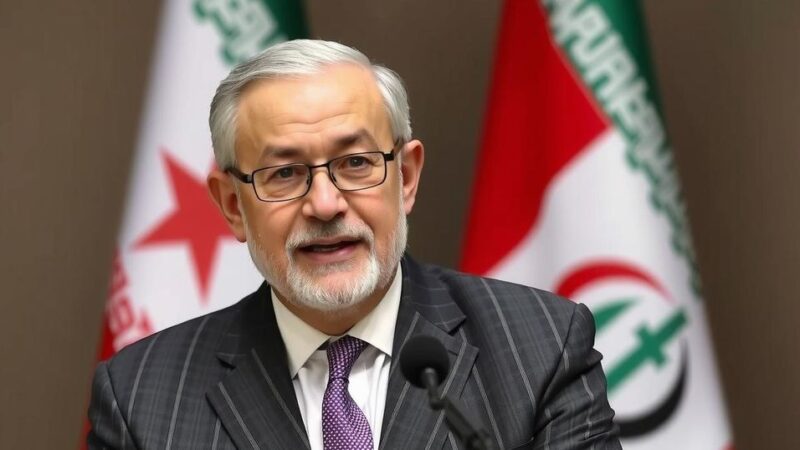Turkey is seeking to improve relations with the Kurdish community following a deadly attack attributed to the PKK. This shift is highlighted by attempts to allow Abdullah Ocalan, the jailed PKK leader, to address parliament. Despite a history of violence, Turkish leaders express a desire for unity between Turks and Kurds. The geopolitical situation in the Middle East plays a crucial role in Turkey’s approach, as analysts note that the current tensions may influence internal stability and security.
Amid ongoing tensions, Turkey is making attempts to improve relations with the Kurdish community following a recent attack by the PKK that resulted in the deaths of five individuals and injuries to 22 others. The Kurdistan Workers’ Party (PKK) asserted responsibility for the assault on the headquarters of the Turkish defense firm TAI in Ankara. This act of violence took place shortly after Devlet Bahceli, the leader of the nationalist MHP party, proposed allowing Abdullah Ocalan, the imprisoned PKK leader, to address the Turkish parliament in a bid to renounce terrorism and dissolve the group. The PKK, however, distanced itself from the timing of the attack, asserting it was a pre-planned action meant to issue a warning regarding Turkey’s actions. In response, the Turkish military initiated strikes on Kurdish positions in northern Syria and Iraq. Experts suggest that Turkey’s shift towards reconciliation is influenced by the complex geopolitical landscape, particularly the instability in the Middle East and its implications for neighboring countries. Analysts highlight that both Iraq and Syria have significant Kurdish populations that could affect Turkey’s security and political strategies. Three days following the attack, Bahceli reiterated the need for unity between Turks and Kurds by stating, “Turks and Kurds must love each other, this is both a religious and a political obligation for both sides.” In a noteworthy development, Ocalan received a family visit for the first time since 2020 just hours prior to the attack, raising questions about his influence and the dynamics within the Kurdish movement. Public sentiment in Turkey appears to be cautious regarding these overtures to the PKK, with many perceiving them as a response to external regional pressures, including the growing conflict associated with Israel and Hamas. Analysts conclude that Turkey’s attempts at reconciliation with the Kurds are not only an effort to stabilize internal relations but also a strategic maneuver to fortify its position amidst broader regional challenges.
The complex relationship between Turkey and the Kurdish population has been fraught with tension, particularly since the PKK initiated its insurgency against the Turkish state in 1984. The PKK has consistently been regarded as a terrorist organization by Turkey and its Western allies. The recent dynamics within the region, particularly the wars in Syria and Iraq and the actions of neighboring powers, have added layers of complexity to Turkey’s approach towards its Kurdish citizens. The Turkish government has often resorted to military measures while simultaneously exploring political solutions, leading to a fraught and intricate relationship characterized by cycles of violence and attempts at reconciliation.
In conclusion, Turkey’s recent efforts to engage with the Kurdish community reflect a potential strategic shift influenced by both internal considerations and external pressures emanating from the geopolitical landscape. The relationship remains complex, as evident from the recent violence and divergent perspectives on reconciliation. Observers will be keen to see how this interaction evolves, particularly in light of the regional challenges Turkey faces and the implications for Kurdish politics within the country.
Original Source: www.iraqinews.com







